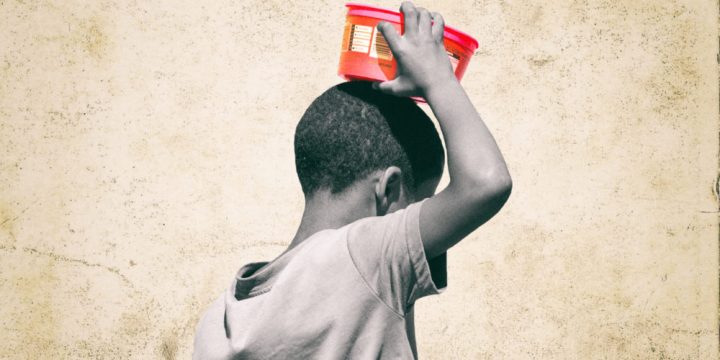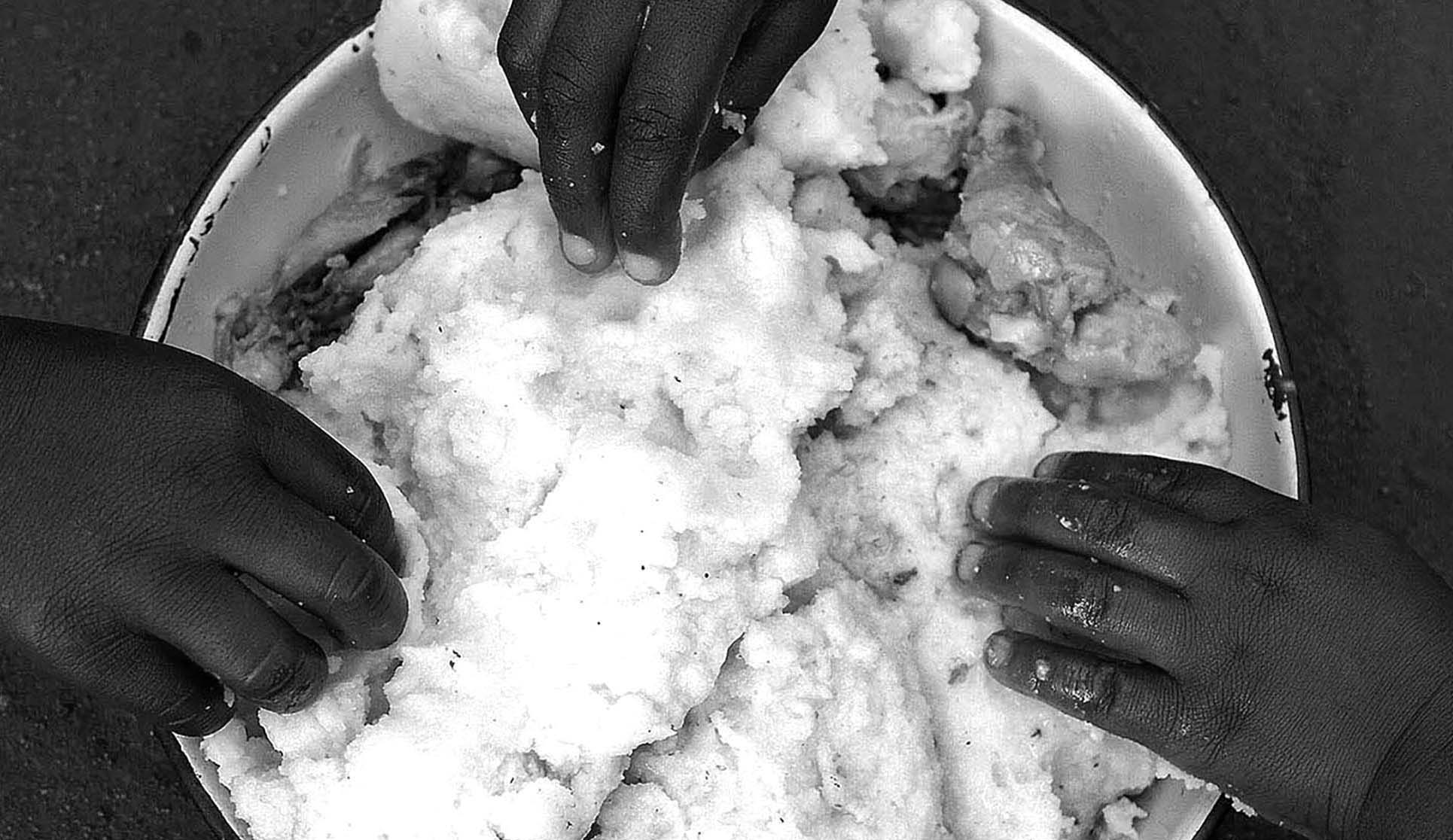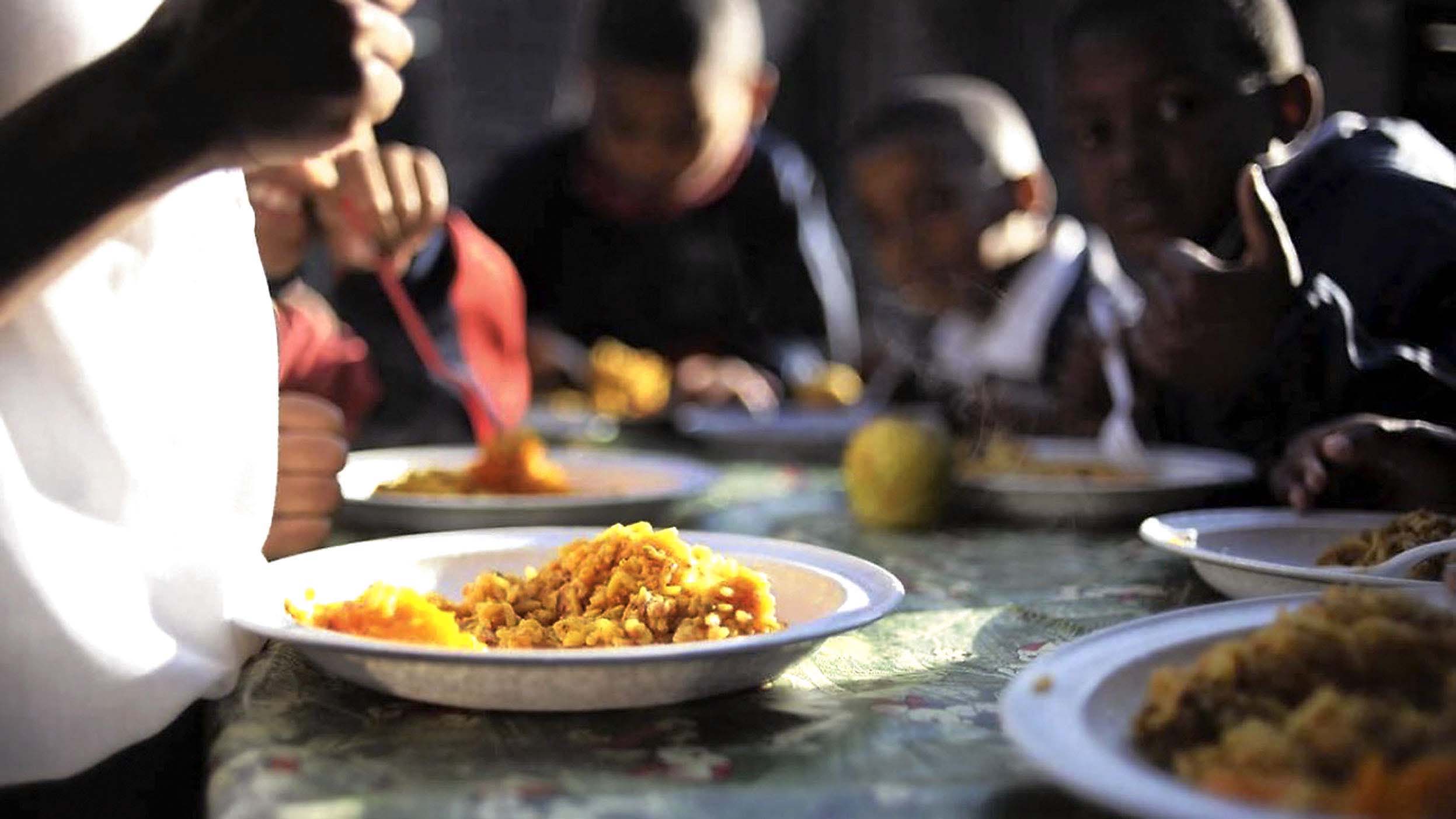TUESDAY EDITORIAL
Hunger warning – severe acute malnutrition stalks the land

Last week, an article by Maverick Citizen journalist Estelle Ellis reported that seven children in the Butterworth area in the Eastern Cape had died of severe acute malnutrition since January 2022 and six others had to be admitted to hospital. Ellis reported that ‘another eight children were fighting for their lives in a Lusikisiki hospital’. We now have reason to fear the problem may be much more widespread. But, with a world distracted by war and Will Smith, do you give a shit?
In an ongoing investigation, Maverick Citizen has come across a significant number of further severe acute malnutrition (SAM) cases and deaths. Indeed, we have reason to fear that malnutrition, including cases of SAM, may be increasing again among young children in almost all the provinces of South Africa.
Seven children starve to death, others fight for their lives while malnutrition ravages Eastern Cape
SAM is defined by the World Health Organization (WHO) as “the presence of oedema of both feet or severe wasting (weight-for-height/length <-3SD or mid-upper arm circumference <115 mm)” – a clinical definition. So, before you read any further, we ask that you read this article by a paediatric gastroenterologist working at Rahima Moosa Mother and Child Hospital in Johannesburg who explains what happens in the bodies of children who suffer malnutrition.
Before you read any further, we ask you to imagine the agony of a young child who slowly starves to death, without the ability to give words to her pain, in front of a parent or caregiver who has tried their best, but for one reason or another thinks there is nothing more they can do. The deaths are often to do with external factors, and failure of state safety nets. In the case of three of the seven cases Maverick Citizen reported the children “were living with caregivers who were either undocumented or struggled to access grants due to old age”.
Before you read any further, we ask you to understand that SAM is the tip of an iceberg of child hunger, malnutrition and undernutrition, that blights millions of children and which activists and health workers have been warning about – seemingly to no avail – for years.
It’s the type of pain that belongs to the fiction of another age. But it’s a fact of our time. And it’s happening in a country where all children have an unqualified, immediately realisable right to “basic nutrition”. Put another way, in theory it’s illegal for children to starve, or even to be malnourished in South Africa.

Activists and health workers have been warning about child hunger, malnutrition and undernutrition – seemingly to no avail – for years. (Photo: Gallo Images / Sowetan / Sandile Ndlovu)
It has been two years since the first lockdown on 27 March 2020. It should have been obvious that following the loss of so many jobs and livelihoods caused by Covid-19 and the measures taken by Cabinet under the State of Disaster, that this risk to children existed. We warned about it in May 2020. But, as usual the government waited for it to happen, rather than taking measures to prevent it. As a consequence, SAM is the result of concurrent and colliding failures of many government departments, the retail food sector and Chapter 9 institutions. It is the failure of:
- The Home Affairs Department to document children and ensure they all have birth certificates
- The Department of Social Development to register children and roll out the Employment Support Relief Fund to early childhood development (ECD) centres all over the country. This Friday, 31 March, about R250-million of the funds ECD staff applied for will be handed back to Treasury;
- The Department of Health to institute simple systems to monitor children’s growth and ensure access to healthcare systems for the most vulnerable through trained community health workers;
- Giant food retailers who excessively price essential nutritious foodstuffs beyond the reach of the poor in the interests of their shareholders and large profits; and
- National Treasury and Cabinet who bear collective responsibility for prioritising so-called fiscal consolidation over calls for improved social security and “if [people] are unable to support themselves and their dependents, appropriate social assistance.”
However, in this editorial, we do not want to expend too many more words on assigning responsibility. That’s for the electorate, the bodies that should investigate this crisis and the consciences of politicians (if they still have them).
What we want to do instead is recommend four steps that must be taken urgently to prevent more child deaths and to fulfil the constitutional injunction that every child should have “basic nutrition.”
We appeal that:
- The Department of Health institutes a proper surveillance system to assess the impact of levels of food insecurity on health. Paediatricians say this surveillance is most needed outside hospital settings and that community health workers are ideal to do this. On Monday, two senior paediatricians I consulted responded that there is “no active surveillance system monitoring this. Usually get the data retrospectively from DHIS data or CHIP”. Another said: “I will check with xxx but my impression is, yes, but very hard to actually be sure as we only see the tip of the iceberg as many are not admitted.” However, in the words of Professor Ashraf Coovadia, head of paediatrics at Rahima Moosa Mother and Child Hospital: “[To detect wasting] All you need is a tape to measure their mid-upper arm circumference. It’s cheap, easy, quick, reliable and validated. It’s also recommended by the WHO”;
- The Presidency should intervene to stop more than R250-million of its stimulus fund for ECD centres (see the minister of social development’s response to a parliamentary question here) being returned to Treasury, take over the payments of the ECD grant and ensure that within one month payments are made to all eligible persons who, two years ago, applied for the grant;
- The South African Human Rights Commission and Competition Commission should establish the content and cost of meeting the nutritional needs of a young child and link this to an investigation of the price of essential foodstuffs and whether it is related to the costs of their production. The retail food sector, represented by the Consumer Goods Council of South Africa, should proactively reduce prices on essential foodstuffs. Charity is not what we need here, because the problem is a systemic one; and
- The Department of Home Affairs should initiate outreach programmes across the country to ensure that all children have birth certificates and that all people have identity documents or relevant papers, including asylum seekers and refugees.

Steps must be taken urgently to prevent more child deaths and to fulfil the constitutional injunction that every child should have ‘basic nutrition’. (Photo: African News Agency (ANA) Archives / Wikipedia)
These four measures would save lives. But, sadly, we suspect they will not happen. So, at the end of the day, the first question for the government and citizens is: Does this crisis move you? Do you care about the lives and pain of poor children, or is out of sight out of mind? The answer and the action that is incumbent on it (or not) tells us a lot about ourselves and the society we have become. Over to you… DM/MC


















 Become an Insider
Become an Insider
I so agree with you, seeing children and making assumptions based only on what is seen in clinics is dangerous. We need to be doing more work outside the clinics to detect and support children and their families who are in nutrition danger zones. And the role of Home Affairs needs to be expanded to more proactive in getting children and families registered. They cannot ‘wait’ until someone comes to them for registration of births, applications of grants etc.
But we have R50M to give to Cuba
Thank you for the article Mark. Do I care ? yes. The question is what to do about it when there is already very little spare time. But the 4 action steps listed make practical sense: surveillance by community health workers, pay the ECD centres (cant believe they still cant sort this out), bring down the profits on sale of essential foodstuffs, and Home Affairs to get its act together. From a bigger picture point of view, my hope would be for a change to the tax system, which encourages land monopoly and speculation. So that land at the outskirts of towns can sell at its real value rather than speculation value, so that towns and cities no longer sprawl but rather condense and become cost effective and job enhancing. So that land on the outskirts can become smallholdings, on a massive scale, farmed intensively with organic methods, causing soil enrichment instead of topsoil washing away, and for family food security and leading gradually to market participation.
The ANC spent recently 20 million on new cars and 50 million they want to spend on Cuba and that is just 2 examples. The people in eastern cape vote anc what more can one do? This starvation now is just horrible but beyond the help of ordinary people.
This tragedy can be attributed to a few factors, the main one being outsourcing of feeding schemes to the politically connected to be run as another cash cow. Any food actually procured is sold for a profit through their private shops and spazas, the poor don’t see so much as a loaf of bread. This is criminal.
SA signed its commitment to meeting the Sustainable Development Goals (SDGs) in 2015 , but like many other countries is not showing much progress with reaching them. Goal 2 is about zero hunger.
UNESCO points out that “in light of the pandemic’s effects on the food and agricultural sector, prompt measures are needed to ensure that food supply chains are kept alive to mitigate the risk of large shocks that have a considerable impact on everybody, especially on the poor and the most vulnerable.” This should be done by boosting social protection programmes, keeping the domestic supply chain gears moving, and supporting smallholder farmers’ ability to increase food production. Nutrition vulnerability is closely associated with environmental degradation and climate change, both of which seem to be regarded as trivial matters by the DMRE which continues to argue strongly for more, not less reliance on fossil fuels. That this push should be happening significantly in the Eastern Cape is dramatically ironic.